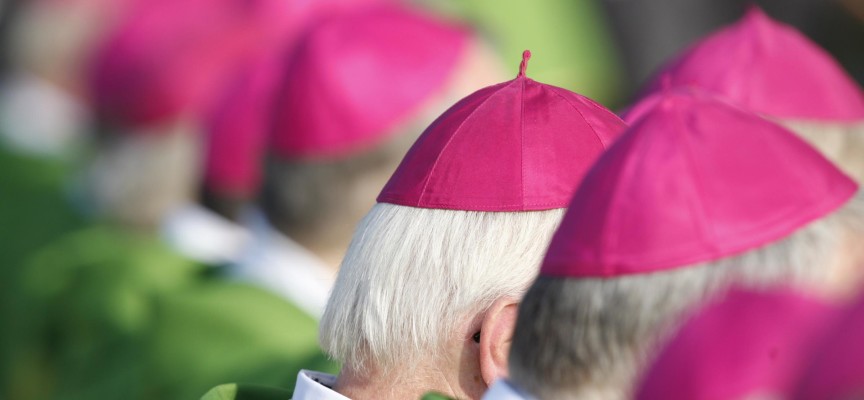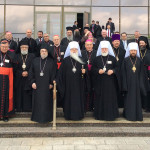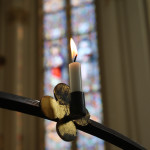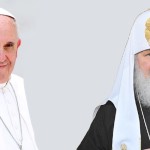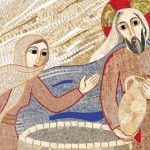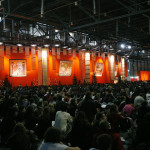“A clear sign of the strong interest of the EU Commission to continue the dialogue with the churches”: this is the meaning, in the words of Card. Reinhard Marx, President of the Commission of the Bishops Conferences of the European Community (COMECE), of the meeting that the bishops of the 28 EU countries had with President Jean-Claude Juncker and his deputy Frans Timmermans, during the plenary session that took place in Brussels from 18th to 20th March.
Little has leaked through the information service of Comece of the meeting, if not generic references to the themes addressed in the interview: “the situation in Europe, the future of the Eurozone and of European unification.” Only the bishop of Piacenza-Bobbio Gianni Ambrosio, talking with SIR, reported a meeting “interesting, relaxed but also very frank”, during which the executive is said to have reported “programmes and intentions” about “the challenges that are in front of Europe “. According to the Italian bishop, who is also vice president of COMECE, an important underlining came from Timmermans about “the themes of tolerance, freedom and solidarity” and the need to “search for new narratives” of the integration process, to clarify “ the identity of Europe today “and foster a closer relationship with European citizens. The bishops are also said to have met two other political figures from the Commission to “identify issues on the political agenda of the EU Commission which have specific relevance to the Church from a socio-political point of view.” Among the topics addressed by the assembly of bishops – according to a SIR source – there were also migration and asylum, Ukraine, Libya and Tunisia, as well as the TTIP, the treaty on trade exchanges that the EU and the USA are negotiating and which raises not few concerns in Europe for its heavy (and not always positive) impact on the environmental, social and occupational field.
Card. Marx announced the possibility of a “joint statement” of the EU and USA bishops on the subject. In the assembly, the bishops also discussed Muslim-Christian dialogue and its implications for peaceful coexistence in Europe with Card. Jean-Louis Tauran, president of the Pontifical Council for Interreligious Dialogue. The will of the European bishops to follow closely the processes in which the EU is involved is also reflected by the choice to come together for the traditional autumn plenary meeting in Paris, before the long-awaited and controversial international climate conference (COP 21), just because one of the “programmatic priorities” of COMECE is the climate change and environmental safeguard, with all the social consequences, in terms of justice, distribution of wealth, solidarity and shared responsibility that the problem involves. So the European bishops continue to “want to be” in this Europe, to encourage it, not without giving signals and alarms on those that are the ethical fragilities of its construction, expressing “serious concern” in the economic and social field (first of all youth unemployment ), in the field of migration and security (fight against terrorism). And it also continues in the presidency Card. Reinhard Marx, who during the assembly has seen its mandate renewed for another three years (according to the statutes it will be the last); the two vice-presidents, the Belgian Jean Kockerols (auxiliary of Mechelen-Brussels) and the Italian Gianni Ambrosio were also re-elected.
“Un chiaro segno del forte interesse della commissione UE nel continuare il dialogo con le Chiese”: questo il significato, secondo le parole del card. Reinhard Marx, presidente della Commissione degli episcopati della comunità europea (COMECE), dell’incontro che i vescovi dei 28 paesi EU hanno avuto con il presidente Jean-Claude Juncker e il suo vice Frans Timmermans, nel corso dell’assemblea plenaria che si è svolta a Bruxelles dal 18 al 20 marzo scorsi.
Ben poco è trapelato attraverso il servizio d’informazione della Comece di quell’incontro, se non generici riferimenti ai temi affrontati nel colloquio: “la situazione in Europa, il futuro della zona Euro e dell’unificazione europea”. Solo il vescovo di Piacenza-Bobbio, mons. Gianni Ambrosio, parlando con il Sir, ha riferito di un incontro “interessante, disteso ma anche molto franco”, durante il quale l’esecutivo avrebbe riferito “i programmi e i propositi” riguardo “le sfide che ha di fronte l’Europa”. Una sottolineatura importante secondo il vescovo italiano, che è anche vicepresidente Comece, è arrivata da Timmermans riguardo “i temi della tolleranza, della libertà, della solidarietà” e la necessità della “ricerca di nuove narrazioni” del processo d’integrazione, per chiarire “l’identità dell’Europa di oggi” e favorire un rapporto più stretto con i cittadini europei. I vescovi avrebbero incontrato anche altre due personalità politiche della Commissione per “identificare i temi del programma politico della commissione UE che hanno rilevanza specifica per la Chiesa da un punto di vista socio-politico”. Tra i temi affrontati dall’assemblea dei vescovi – sempre secondo fonte Sir – ci sono stati anche le migrazioni e l’asilo, Ucraina, Libia e Tunisia, oltre che il Ttip, il trattato sugli scambi commerciali che Ue e Stati Uniti stanno negoziando e che suscita non poche perplessità in territorio europeo per le sue pesanti (e non sempre positive) conseguenze sul piano ambientale, sociale, lavorativo.
Il card. Marx ha annunciato la possibilità di una “dichiarazione congiunta” dei vescovi Ue e Usa sull’argomento. Nell’assemblea i vescovi hanno discusso anche di dialogo islamo-cristiano e le sue implicazioni per una convivenza pacifica in Europa con il card. Jean-Louis Tauran, presidente del Pontificio consiglio per il dialogo interreligioso. La volontà dei vescovi europei di seguire da vicino i processi in cui l’Ue è coinvolta traspare anche dalla scelta di riunirsi, per la tradizionale assemblea plenaria di autunno, a Parigi prima della tanto attesa e controversa Conferenza internazionale sul clima (Cop 21), proprio perché una delle “priorità programmatiche” della Comece è il cambiamento climatico e la difesa dell’ambiente, con tutte le ripercussioni sociali, in tema di giustizia, distribuzione delle ricchezze, solidarietà e corresponsabilità che la problematica implica. Quindi i vescovi europei continuano a “volerci essere” in questa Europa, a incoraggiarla, non senza lanciare segnali e allarmi su quelle che sono le fragilità etiche della costruzione, esprimendo “forti preoccupazioni” in campo economico e sociale (prima tra tutte la disoccupazione giovanile), migratorio, della sicurezza (lotta al terrorismo). Continua anche la presidenza del card. Reinhard Marx, che durante l’assemblea ha visto il proprio mandato rinnovato per un altro triennio (secondo gli statuti sarà l’ultimo), così come sono stati riconfermati i due vice-presidenti, il belga Jean Kockerols (ausiliare di Malines-Brussels) e l’italiano Gianni Ambrosio.
Sarah Numico
Latest posts by Sarah Numico (see all)
- Neither lecturers nor teachers, but witnesses - 25 aprile 2015
- Holy Week with the persecuted - 30 marzo 2015
- They choose “to be in it” - 23 marzo 2015

